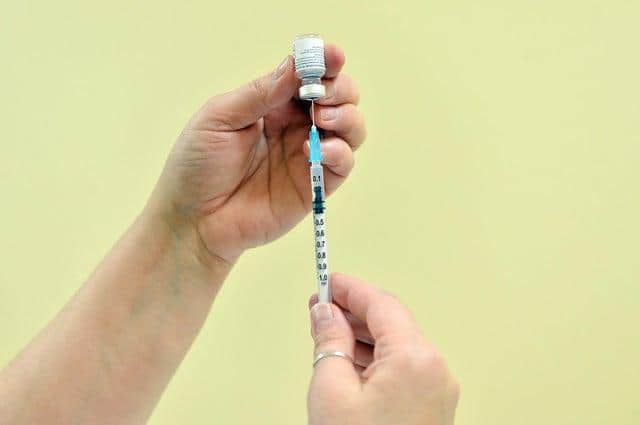Evidence growing of a link between Astrazeneca vaccine and extremely rare blood clots
and live on Freeview channel 276
However The Medicines and Healthcare Products Regulatory Agency (MHRA) says the benefits continue to outweigh any risk.
Other countries including Germany, France, the Netherlands and Canada have restricted the vaccine's use only to older people.


Advertisement
Hide AdAdvertisement
Hide AdThe agency said on Thursday that it had identified 30 cases of rare blood clot events among people in the UK who had received the AstraZeneca jab, following similar reports from Germany.
Professor Paul Hunter, a medical microbiologist at the University of East Anglia, told the BBC Radio 4 Today programme: “It is not uncommon to get clusters of rare events purely by chance.
“But, once you find that cluster in one population and it then crops up in another – such as previously in the German and now in the English – then I think the chances of that being a random association is very, very low.
“Clearly more work needs to be done, but I think the evidence is shifting more towards it being causally related at the moment.”
Advertisement
Hide AdAdvertisement
Hide AdHowever he said that the risks of taking the AstraZenca vaccine were still far outweighed by the risks of not getting the jab.
“The chance of dying if you don’t have the vaccine is many times greater than the risk of dying from CVT (cerebral venous thrombosis) after the AstraZeneca vaccine, even if it does turn out, as I suspect it will, that this link is causal,” he said.